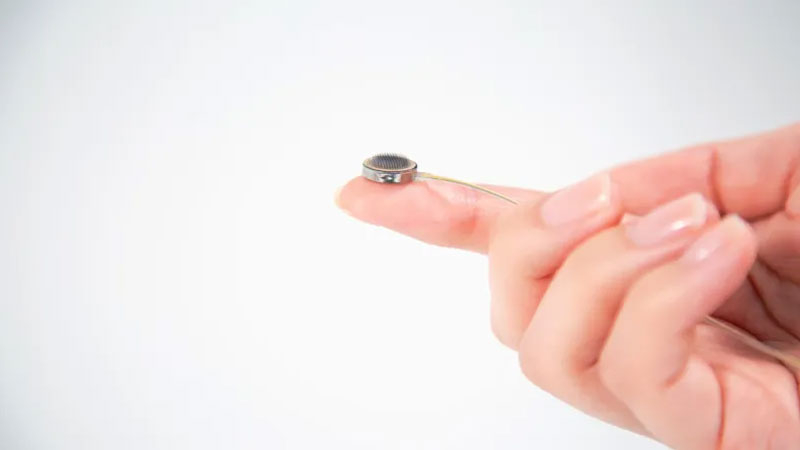US Approvs Human Trials Of Brain Implant For Speech Restoration For The First Time
Credit: Paradromics
Austin, Texas-based Paradromics has received regulatory approval for the first clinical trials of its fully implantable brain-computer interface, Connexus, designed to restore speech in patients with severe paralysis. This is the first device of its kind in the world to receive approval for human trials.
Each sensor is a “coin” measuring 7.5 x 1.5 mm with over 400 platinum and iridium electrodes. Each electrode is 40 µm thick, which is only slightly larger than the size of a single neuron. This is precisely the advantage of the Connexus sensor—each electrode is capable of capturing the activity of approximately one neuron in the motor cortex.
In June of this year, Paradromics tested its brain implant for the first time on a living human brain. However, at that time, it was implanted in a brain region slated for amputation. The goal was to test the compatibility of the sensor’s materials and characteristics with living human tissue. The experiment was deemed successful, allowing the company to submit an application for clinical trials.

The US Food and Drug Administration (FDA) approved the company to implant Connexus sensors in two patients—one for each. If successful, the trial will be expanded to ten patients, two of whom will receive dual sensors to increase the amount of data collected and the accuracy of brain activity monitoring.
The first clinical trials on humans will bring closer the moment when patients who have lost speech after a stroke or injury will be able to return to full communication.




